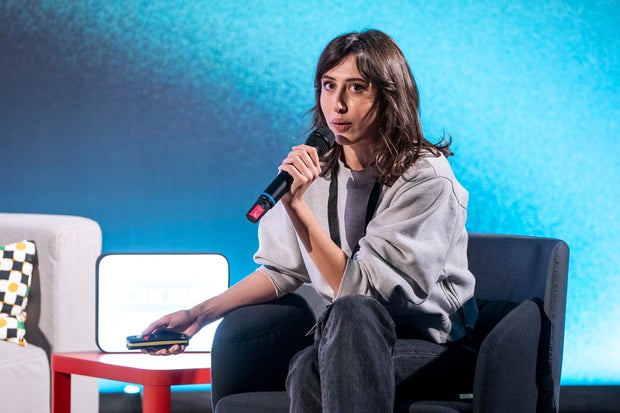Italy’s government said Friday that a journalist from the country had been detained by Iranian authorities for a week and that the circumstances of her detention remained unclear. The Italian Foreign Ministry is working with Iranian officials to “clarify the legal situation of Cecilia Sala and to verify the conditions of her detention,” according to a statement from the ministry.
Sala was in Iran reporting for the Italian newspaper Il Foglio, according to an article published by the outlet on Friday, when she was detained on Dec. 19. The newspaper’s editor called for her immediate release in the article, saying “journalism is not a crime.”
“Cecilia was in Iran, with a regular visa, to tell the story of a country she knows and loves, a country where information is suffocated by repression, threats, intimidation, violence, detentions, often against journalists themselves,” Il Foglio editor Claudio Cerasa said in the article.
Elena Di Vincenzo/Archivio Elena Di Vincenzo/Mondadori Portfolio/Getty
He said the newspaper only decided to publish a story about Sala’s detention after receiving “assurances from the heads of our diplomacy that informing readers of the news of her arrest would not slow down diplomatic efforts to bring her home.”
Iran’s government had not acknowledged Sala’s arrest by Friday, and none of the country’s official media outlets were reporting about it. Some Iranian analysts who spoke with CBS News on the condition they remain anonymous noted that Sala could have been detained to use as a bargaining chip in negotiations over two Iranian nationals detained in recent months in Italy over alleged sanctions violations.
In its statement, the Italian Foreign Ministry said Sala was detained by Tehran police while “in Iran to carry out journalistic services.” The ministry said Italian Ambassador Paola Amadei had made a consular visit “to verify the conditions and state of detention” of Sala.
The ministry did not confirm that she was being held at Iran’s notorious Evin Prison outside Tehran, as reported by Il Foglio. It said her family had been “informed of the results of the consular visit,” without providing any further details.
Regardless of the reason for her detention or any charges eventually announced against Sala, the Islamic clerics who rule Iran have a well-established record of silencing dissent.
All media outlets in the country are tightly controlled by the government. Street protests against supreme leader Ayatollah Ali Khamenei, sparked by rage over the killing of a young woman in police custody and draconian enforcement of religious edicts, have been quashed by force more than once in recent years.┬Ł
Sala’s most recent article published in Il Foglio was a political analysis examining the implications for Khamenei’s regime of the dramatic fall of Iran’s close ally in Syria, the dictator Bashar al-Assad.┬Ā

